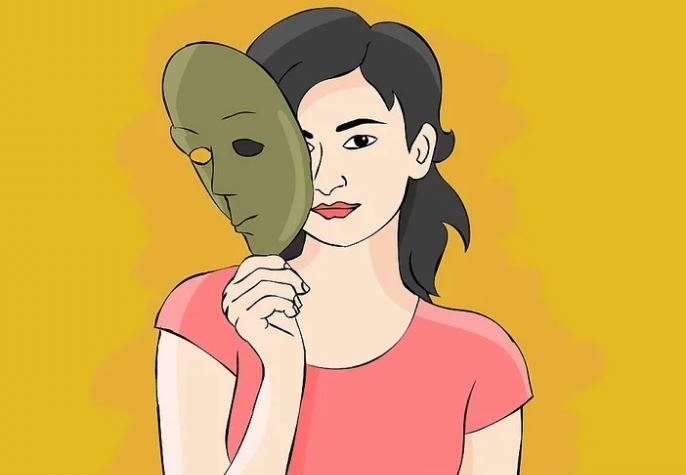Cover photo courtesy: https://www.wikihow.com/Be-Happy-(As-a-Teen-Girl)/Creative Commons
BY RAJAT SONI*
It has been more than a year since the start of the coronavirus pandemic in the United States. After a period of lockdowns and remote schooling and the disruption of social norms, teens and young adults are reporting growing levels of depression, stress, and anxiety.
Below, I share insights that emerged from my coaching interactions with teenagers and families:
1. The intensity of conversations I have had with families this year has been higher than ever, with parents and teenagers finding it difficult to regulate their emotions.
2. In teenagers, I witnessed that 15-17-year-olds (more boys) face maximum challenges. A generation that enjoys their independence is now caged within their homes.
Where do they take out their aggression? How do they meet their friends?
3. Procrastination has taken over teens. Anxiety and aggression are on the increase. Screen time has ruled and some have even resorted to dangerous choices. Some teens express themselves, but some don’t. In both cases, it has gone to extremes, impacting their self-image.
I was fortunate to be part of some wonderful family bonds shaping up, greater understanding, and more connectedness.
According to Common Sense Media, nearly four in 10 (38%) teens and young adults report symptoms of moderate to severe depression, up substantially from 25% just two years ago, as shared in their 2021 report “Coping with Covid-19”.
When teenagers are resilient, they cope better during or after difficult situations. They respond better to everyday challenges like arguments with friends, disappointing test results, or sporting losses.
Recently, one of my students, Anika,15 years old, became a victim of COVID-19. The last year of being homebound had taken a toll on her mental health, and she had become moderately depressed. And then, she was infected with the virus.
I had started working with her about 3 months before she fell sick. High fever, loss of appetite, disinterest in doing anything, and the negative internal dialogue was beginning to come up again. It was the whole family that was suffering.
She overcame the challenges she faced with the 3 As.
Awareness:
- Anika wrote down everything she was feeling at the moment she received her report– feelings of being overwhelmed, anxiety, and weakness.
- Since we had worked on her positive qualities, she opened her wardrobe where she had pasted it and went through the list, bringing to her awareness that she had the capability to deal with her emotions.
- She then went on google to search for COVID survivors and how they coped.
Acceptance:
With all the information at hand, and by applying a healing technique called EFT (Emotional Freedom Technique or Tapping) she was able to accept her feelings and was ready for the time it is going to take to heal.
Action:
We had been working on this from Day 1, so she had got used to creating her affirmations and repeating them daily. Although deep breathing and physical activity was difficult for her, she could still practice gratitude and affirmations regularly. Affirmations are positive statements that can help you to challenge and overcome self-sabotaging and negative thoughts. When you repeat them and believe in them, you can start to make positive changes. On most days, she would practice being thankful about the gifts she has in her life.
Some of the affirmations she used were:
- I am calm and relaxed
- I am attracting positive energy into my body
- I am safe and in control
- I am strong and will recover soon
Anika refrained from accessing social media, so she was not consuming any negative/false information surrounding COVID during the time she was infected. This helped her stay away from any news that could increase her anxiety. After 10-12 days, she started sketching, even though she felt fatigued.
In this case, I worked with the family as a whole, so collective positive energy along with the right medication and doctor’s support helped the family recover from COVID, both emotionally and physically.
The above teenager successfully prioritized and managed her thoughts, decoded and accepted her feelings, wrote them down, and then worked on them in the best way she could considering her health. She made a decision to not let COVID impact her mental health. If I put it simply, Anika exhibited Resilience.
For a Resilient teenager and a harmonious family, I recommend the following:
Thought & Emotion Management:
With so much news floating around about COVID, coping with anxiety and uncertainty is a priority. For parents and teenagers, regularly de-cluttering and structuring their thoughts and manging their emotions positively helped them gain clarity in thought and action.
Empathy:
A genuine attempt for parents and teenagers to step into their shoes, understand each other and exhibit empathy helped them become more aware of themselves and their family. The conflicts and chaos at home at the beginning of the pandemic when resolved with calmness and understanding created better family bonds. It doesn’t happen overnight but by using the right methods, it is possible.
Moderation in Screen Time:
The screen has become a source of entertaining each emotion, may it be happiness, excitement, and above all boredom. Technology has a lot to give us in terms of connecting with friends and family, getting information about COVID, etc.
On the negative side, it has become a solution for all unresolved emotions and also about the anxiety created with some false information spread regarding the pandemic.
On the positive side, it has really helped teenagers to create a boredom corner for themselves (one of my students calls it the “Chill Out” zone”) where all their offline interests like art, music, books, were put in one area and whenever a teenager felt bored, he could go there and stimulate his creativity, rather than get into an argument on getting more screen time. Also more family time together where discussions were not merely about academics and career but fun conversations without gadgets.
Parents, you are putting in your best efforts to enable your teenager to be safe, happy, and feel loved.
For teenagers, it is a phase where they are opening up to a new world, new situations, hormonal changes and so much more. Their emotional seat of the brain is now more developed, making them respond in angry or anxious ways. The moments when teens reflect upon themselves, they realize they have hurt you. They take time to connect with their true feelings hidden beneath aggression and anxiety. They do appreciate your efforts even though they don’t say it.
The real skills that empower your teenager to be resilient are Reflective Writing, Decoding their Feelings, Thought Management and Prioritisation, Gratitude, and Decision Making.

Un-Judge Yourself and Un-Judge Your Teenager.
Stay Safe, Stay Awesome!
About the Author: Rajat Soni is a Teen-Life & Parenting Coach with a two-fold mission:
1. Enabling Teens Become Resilient Young Adults to Bounce Forward into a Successful & Happy Life.
2. Helping Adults Create a Space for Creative & Harmonious Communication with their Teenagers
He is the author of the International Bestseller “Un-Judge Your Teenager” which is a breakthrough book for Parent-Teen relationships.

Rajat is a certified coach from the International Coach Federation, an NLP & EFT practitioner. He has been working with teenagers and families globally through personal coaching and group programs for teens & parents.
He has been featured on Parents World, The Teenager Today, and has been a speaker on various international platforms.
To know more about him, please visit www.rajatsoni.coach





